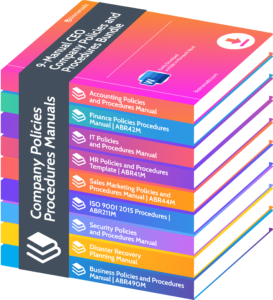What Should a CEO Know About Global Economic Trends?

As a CEO, staying informed about global economic trends is crucial to the success of your company. With the ever-changing landscape of the global economy, it is important to understand the potential impact on your business and how to adapt to these trends. In this article, we will explore the key economic trends you should be aware of and how they could affect your company’s growth and stability. Stay ahead of the curve and equip yourself with the knowledge to navigate the global economy with confidence. What should a CEO know about global economic trends?
What is the Role of a CEO in Understanding Global Economic Trends?
Understanding global economic trends is essential for CEOs as it enables them to make informed decisions and stay ahead of the competition. The role of a CEO in comprehending these trends includes:
- Monitoring economic indicators like GDP growth, inflation rates, and interest rates.
- Analyzing market trends, such as consumer behavior and emerging markets.
- Evaluating geopolitical factors that impact global trade and investment.
- Collaborating with experts, attending conferences, and staying updated on economic news.
By actively engaging in understanding global economic trends, CEOs can anticipate changes, identify opportunities, and lead their companies towards success in an ever-changing global marketplace.
Why is it Important for a CEO to Stay Informed about Global Economic Trends?
In today’s interconnected business landscape, staying informed about global economic trends is crucial for CEOs. It allows them to anticipate and navigate potential challenges, identify new opportunities, and make strategic decisions based on informed insights.
Understanding these trends also helps CEOs stay ahead of the competition, adapt to market fluctuations, and take advantage of emerging markets. Additionally, it enables them to assess the impact of trade wars, tariffs, and regulatory changes on their business operations.
In summary, having knowledge of global economic trends empowers CEOs to effectively steer their companies towards sustainable growth and profitability.
What are the Current Global Economic Trends?
As the leader of a company, it is crucial to have a clear understanding of the current global economic landscape. In this section, we will discuss the major trends that are shaping the global economy and how they may impact businesses.
From the rapid shift towards a digital economy to the rise of emerging markets, we will cover the key forces that are driving change and their potential implications. Additionally, we will explore the growing importance of sustainable business practices and the impact of trade wars and tariffs on the global economy.
1. Shift towards a Digital Economy
In today’s global economy, there is a clear shift towards a digital economy. This transformation has significant implications for businesses, and it is essential for CEOs to stay informed and adapt to this changing landscape. Here are some steps a CEO can take to navigate the shift towards a digital economy:
- Educate yourself: Stay updated on digital trends, technologies, and innovations.
- Incorporate digital strategies: Embrace digital tools and platforms to streamline operations and enhance customer experience.
- Invest in digital talent: Hire experts in data analytics, artificial intelligence, and digital marketing.
- Cultivate a digital culture: Foster a mindset of innovation and agility to embrace digital transformation.
- Collaborate with tech partners: Form partnerships with technology companies to leverage their expertise and stay ahead of the curve.
2. Rise of Emerging Markets
The growth of emerging markets has become a prominent trend in the global economy. These markets, including China, India, and Brazil, are seeing rapid economic expansion and emerging as major players on the world stage. This presents both opportunities and challenges for CEOs.
By expanding their operations into these markets, CEOs can tap into new customer bases and increase their revenue. However, they must also navigate cultural differences, regulatory complexities, and competition from local businesses. Staying informed about these emerging markets through market research, networking, and partnerships is crucial for CEOs to make well-informed decisions and capitalize on growth opportunities in these markets.
A notable example is a technology company based in Silicon Valley that recognized the rise of emerging markets, particularly in Southeast Asia. The CEO invested in thorough market research and formed strategic partnerships with local companies, enabling them to tailor their products to the specific needs of these markets. As a result, they successfully expanded into these emerging markets, experiencing significant growth in revenue and establishing a strong presence in the region.
3. Growing Importance of Sustainable Business Practices
The significance of sustainable business practices is on the rise as a major global economic trend. Consumers are now demanding that companies prioritize environmentally responsible practices. In order to stay competitive and mitigate risks, CEOs must make sustainability a top priority.
By implementing sustainable practices, companies not only benefit the environment but also improve their brand image, attract socially conscious customers, and reduce long-term costs. CEOs can adopt sustainable business practices by:
- reducing waste
- utilizing renewable energy sources
- embracing circular economy principles
- supporting social responsibility initiatives
These practices not only contribute to a more sustainable future, but also position companies as leaders in their respective industries.
4. Impact of Trade Wars and Tariffs
Trade wars and tariffs have a significant impact on businesses and their CEOs. When countries impose tariffs on imported goods, it can lead to higher costs for businesses and consumers, ultimately resulting in reduced profits and increased prices for customers.
These trade wars also create uncertainty and disrupt supply chains, which can greatly affect business operations and investments. It is crucial for CEOs to stay well-informed about these global economic trends in order to anticipate potential challenges and adjust their strategies accordingly.
By closely monitoring trade policies, engaging in advocacy efforts, and exploring alternative markets, CEOs can effectively navigate the impact of trade wars and tariffs.
How Can a CEO Stay Informed about Global Economic Trends?
In today’s interconnected world, global economic trends can greatly impact a company’s success or failure. As a CEO, it is crucial to stay informed and ahead of these trends in order to make strategic decisions for your organization.
In this section, we will discuss various methods for staying informed about global economic trends, including attending conferences and seminars, networking with industry leaders, reading industry reports and publications, and utilizing data and analytics. By actively engaging in these practices, a CEO can ensure that their company is prepared for any economic changes on the horizon.
1. Attend Conferences and Seminars
Attending conferences and seminars is a crucial step for CEOs to stay informed about global economic trends.
- Research: Identify relevant conferences and seminars that focus on global economics and industry-specific trends.
- Plan: Determine which events align with your business objectives and target audience.
- Attend: Register for the selected conferences and seminars and make time in your schedule to fully participate.
- Engage: Actively participate in sessions, ask questions, and network with industry experts.
- Learn: Take notes, gather insights, and stay updated on the latest trends and best practices.
- Apply: Use the knowledge gained to inform strategic decision-making and adapt your business strategies accordingly.
In the early 20th century, influential leaders like Henry Ford and Thomas Edison attended conferences and seminars to exchange ideas and stay abreast of economic developments, contributing to their success.
2. Network with Industry Leaders
Networking with industry leaders is crucial for CEOs to stay informed about global economic trends. Here are some steps to effectively network:
- Attend industry conferences and events to connect with influential figures.
- Join professional associations and organizations to access networking opportunities, including the chance to network with influential leaders.
- Participate in leadership forums and roundtable discussions to engage with industry experts and build connections.
- Utilize social media platforms like LinkedIn to connect with industry leaders and join relevant groups to expand your network.
By building a strong network, CEOs can gain valuable insights, exchange ideas, and stay updated on emerging trends. Remember, networking is a two-way street, so be willing to offer support and collaborate with others in return.
3. Read Industry Reports and Publications
To stay informed about global economic trends, CEOs can take the following steps by reading industry reports and publications:
- Subscribe to reputable industry newsletters and magazines.
- Regularly check reputable online sources like financial news websites.
- Join industry associations and access their publications, including reading industry reports.
- Follow influential economists and analysts on social media platforms.
A CEO of a multinational company, John, regularly read industry reports and publications. By staying informed, he anticipated a global economic downturn and adjusted his business strategy accordingly.
As a result, his company managed to navigate the challenging economic conditions and even achieved growth during the downturn. John’s proactive approach to reading industry reports and publications, including industry reports, played a significant role in his company’s success.
4. Utilize Data and Analytics
To effectively utilize data and analytics for understanding global economic trends, CEOs can follow these steps:
- Identify relevant data sources: Determine which data sources provide comprehensive and accurate information on global economic trends.
- Establish data collection processes: Develop systems to collect and organize relevant data from various sources.
- Implement data analysis tools: Utilize advanced analytics tools to analyze the collected data and identify trends, patterns, and correlations.
- Monitor key indicators: Keep track of key economic indicators such as GDP growth, inflation rates, and exchange rates to gain insights into global economic trends.
- Leverage predictive analytics: Use predictive analytics techniques to forecast future economic trends and assess potential impacts on the business.
By utilizing data and analytics, CEOs can make informed decisions and adapt their strategies to thrive in the ever-changing global economic landscape.
What are the Potential Impacts of Global Economic Trends on a Business?
As a CEO, it is crucial to stay informed about global economic trends and their potential impacts on businesses. In this section, we will delve into the various ways that global economic trends can affect a company.
From opportunities for growth and expansion to challenges in the global market, we will explore the potential impacts of these trends. Additionally, we will discuss the need for adaptability and flexibility in order to navigate and thrive in an ever-changing global economy.
1. Opportunities for Growth and Expansion
Strategic steps that CEOs can take to identify and pursue opportunities for growth and expansion in the global market include:
- Research and analysis: Conduct thorough market research to identify emerging markets, consumer trends, and untapped opportunities.
- Network and partnerships: Form strategic alliances with local businesses, industry associations, and government bodies to gain insights and access to new markets.
- Innovation and adaptation: Continuously innovate products, services, and business models to meet evolving customer needs and stay ahead of the competition.
- Mergers and acquisitions: Explore potential mergers, acquisitions, or joint ventures to gain market share, expand reach, and access new technologies.
- Talent development: Invest in talent development and leadership training to cultivate a skilled and agile workforce capable of driving growth.
By implementing these strategies, CEOs can position their businesses for success and expansion in the global market.
2. Challenges in the Global Market
Navigating the global market presents CEOs with a variety of challenges that must be strategically addressed. These challenges include:
- Increased competition: The process of globalization has led to heightened competition, requiring CEOs to develop innovative strategies to differentiate themselves in crowded markets.
- Cultural differences: Operating in different regions means encountering diverse cultural norms, values, and business practices, necessitating CEOs to adeptly navigate and adapt to these differences.
- Regulatory complexities: Each country has its own set of regulations and policies, making it essential for CEOs to stay informed and compliant to avoid legal issues.
- Economic volatility: Fluctuating currency exchange rates, trade tensions, and geopolitical events can impact businesses’ financial stability and growth prospects, making it necessary for CEOs to develop strategies to mitigate risks.
To overcome these challenges in the global market, CEOs should:
- Build a diverse and agile team that possesses a deep understanding of different markets and cultures.
- Conduct thorough market research and analysis to identify opportunities and mitigate risks.
- Foster relationships with local partners and stakeholders to effectively navigate regulatory complexities.
- Continuously invest in research and development to stay ahead of evolving market trends.
By acknowledging and addressing these challenges, CEOs can position their businesses for success in the global market.
3. Need for Adaptability and Flexibility
The importance of adaptability and flexibility in response to global economic trends cannot be overstated for CEOs looking to ensure the prosperity and longevity of their businesses. To achieve this, here are some steps to consider:
- Regularly monitor market changes to identify emerging trends and adjust strategies accordingly.
- Stay informed about advancements in technology and embrace digital transformation to maintain competitiveness.
- Cultivate a diverse and agile workforce that can quickly adapt to shifting market conditions.
- Invest in continuous learning and professional development to enhance leadership skills and flexibility.
Remember, being adaptable and flexible allows CEOs to successfully navigate the ever-changing global economic landscape and capitalize on new opportunities for growth and success.
Frequently Asked Questions

What should a CEO Know about Global Economic Trends?
-
What are global economic trends?
Global economic trends refer to the overall direction and movement of the global economy. These trends can include changes in economic growth, inflation, interest rates, trade policies, and other factors that impact the global economy as a whole.
-
Why is it important for a CEO to understand global economic trends?
As the leader of a company, a CEO needs to have a thorough understanding of global economic trends in order to make informed decisions about the direction of their business. Global economic trends can impact a company’s financial performance, supply chain, customer base, and overall strategy.
-
How can a CEO stay updated on global economic trends?
CEOs can stay updated on global economic trends by regularly reading news and reports from reputable sources, attending industry conferences and events, and consulting with economic experts or advisors.
-
What are some current global economic trends that CEOs should be aware of?
Some current global economic trends that CEOs should be aware of include the impact of COVID-19 on the global economy, the rise of e-commerce and digitalization, and the increasing trend towards sustainability and corporate social responsibility.
-
How can global economic trends affect a company?
Global economic trends can affect a company in various ways, such as changing consumer demand, supply chain disruptions, shifts in currency exchange rates, and changes in government policies. These factors can impact a company’s revenue, expenses, and overall performance.
-
What steps can a CEO take to mitigate the risks associated with global economic trends?
To mitigate the risks associated with global economic trends, a CEO can diversify their company’s revenue streams, establish a strong financial cushion, maintain flexibility in their supply chain, and regularly assess and adjust their business strategy based on changing economic conditions.
















Leave a Reply